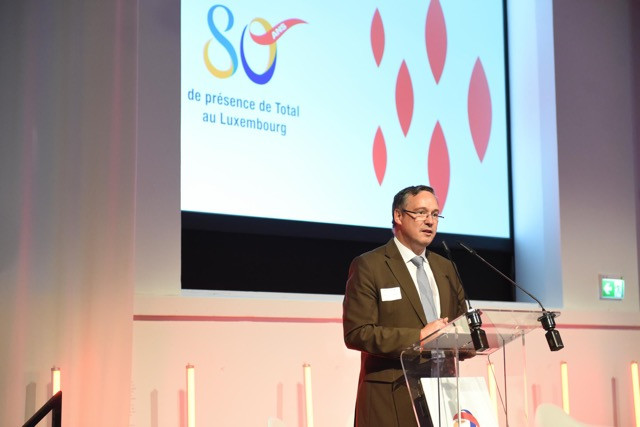With a decrease in the number of vehicles on the road during confinement, and the subsequent fall in the price of oil, petroleum companies like Total were significantly impacted by the coronavirus crisis. Total Luxembourg was not different, says its CEO. “Some stations experienced a massive loss, for example, Rosport when Germany closed the border,” he explains.
Indeed, Total Luxembourg temporarily withdrew staff from three of its stations--one in Schengen village, and one of two in Remich--and adapted opening times at other sites to lessen the economic impact of the lockdown. “We made these changes in full transparency, we had to coordinate with ministry because as an essential industry we had to fulfil a minimal service.”
On the other hand, as prices plummeted so the demand for heating oil rose. “I think everyone in Luxembourg chose to fill their heating oil tanks in March and April,” Schnell says with a smile. “So, price decrease also had an impact.”
However, confinement had no significant impact on non-petroleum sales at Total Luxembourg’s fuelling stations, though some stations did experience a slight short-term increase at the start of lockdown.
As for the company itself, Total Luxembourg didn’t have to resort to short-term unemployment measures, though many of its staff did end up taking the special parental leave as they had to find solutions for looking after children when schools and crèches closed. Some management companies of the petrol stations, such as the privately owned Total stations and those that operate as a franchise did use the “chômage partiel” scheme, but nowhere did anyone have to be made redundant. “Since the restart of the construction sector at the end of May things have slowly returned to normal employment. But sales have not returned to the same levels as last year,” Schnell explains.
At the company’s HQ staff are working as two teams--one teleworking while the other is in the office. And the service stations have also deployed two team schedules. “So, if one person becomes infected, not everyone has to be quarantined.”
Schnell is clearly proud that social distancing and strict hygiene measures were successful. “For me it was an interesting experience, and it worked well. Which is good news.” But he was surprised that nobody from the government asked the fuelling station sector or supermarkets for feedback. “That is not unique to Luxembourg, it was the same in other countries. But I think the Luxembourg government overall did a great job.”
Future strategy
Emerging from the crisis will be the main short-term challenge for the next few years for the petroleum sector, says Schnell. “Unfortunately, I think we will see some difficulties in some countries. We have a product with a high price but small margins, so we have a risk position.”
Longer term, meeting the challenges of climate change continues to be the main strategic goal. “We want to become the responsible energy major. We want to develop and grow alternative trends. We will invest in alternatives to petrol,” he says. Total Luxembourg is working on solutions for electric cars, investing in high-power charging solutions to companies for their fleet cars, and also developing at home chargers for users. “And we will have capacity in France, Germany and Belgium to offer solutions to cross border workers--we will be the only company able to do that.”
One of the most significant plans for Total Luxembourg, which was unveiled at the company’s 80th anniversary celebrations in October 2019, is to build a major multi-energy station in the grand duchy. Before the crisis Schnell was in discussions to find a site, because Total Luxembourg’s existing sites are too small to expand. “It is not easy to find a site, we need the help of the ministry and other partners, including communes. We hope that by the end of the year we will have found a location so that we can build the station by 2022.” The site needs to be in a strategic location, close to highways and with space for around 3,000 square metres. Schnell reckons the multi-energy station could create between 20 and 30 jobs.
Total is also working with vehicle makers, especially truck marques on solutions to use hydrogen as an alternative fuel. Schnell says that the grand duchy needs at least two hydrogen fuelling stations, and maybe up to five. “It is important that a network exists,” says Schnell and points to the German H2 Mobility project, which has ambitious plans to build 100 hydrogen fuelling stations in 2020. Schnell has been in talks with energy minister Claude Turmes, who in a recent Paperjam Club interview [at around 23 minutes] talked about hydrogen capacity, importing and storage. “Hydrogen storage as an alternative energy is one option to meet its climate goals. I think Luxembourg can play an important role,” says Schnell.
